
We kindly inform you that, as long as the subject affiliation of our 300.000+ articles is in progress, you might get unsufficient or no results on your third level or second level search. In this case, please broaden your search criteria.

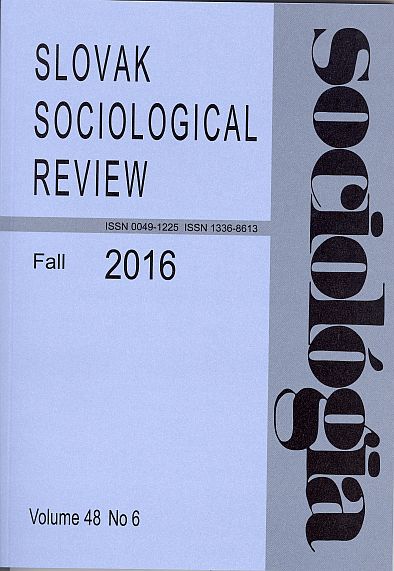
My paper focuses on the relation between chronological age and health. I understand health decline as an indicator of the transition into the fourth age. Currently the definition of the fourth age has been somewhat unclear. Some of the authors consider the fourth age as a synonym of the oldest-old and they define individuals in the fourth age based on their chronological age, mostly between 75 and 80 years. From the perspective of social gerontology, however, such a view is insufficient. Fourth-agers might be characterized especially by the loss of agency, ability to care and to make decisions about themselves. The SHARE data analysis for the Czech Republic confirmed the connection between health decline, frailty and chronological age, but it is not easy to define the exact boundary of the fourth age. Ageing is undoubtedly very individual. The frequently used boundary of 75 years seems to be unsuitable since frailty and general health decline occur more after 80 in men and women. Although the quality of life of older adults declines apparently with age, the decline is more affected by health status than chronological age. Health and quality of life are significantly influenced by the cultural and economic capital of older adults. Older adults with basic education and low income are more at risk of poorer health and lower quality of life. There are also significant gender differences. Women are more fragile, the analysis of the impact of income and education showed, however, that the relationship of gender, health and quality of life is much more complicated. To reach higher quality of life, women benefit from higher income more than men, higher education, however, brings greater benefit to men. Generally, structural factors seem to intervene in health and quality of life significantly.
More...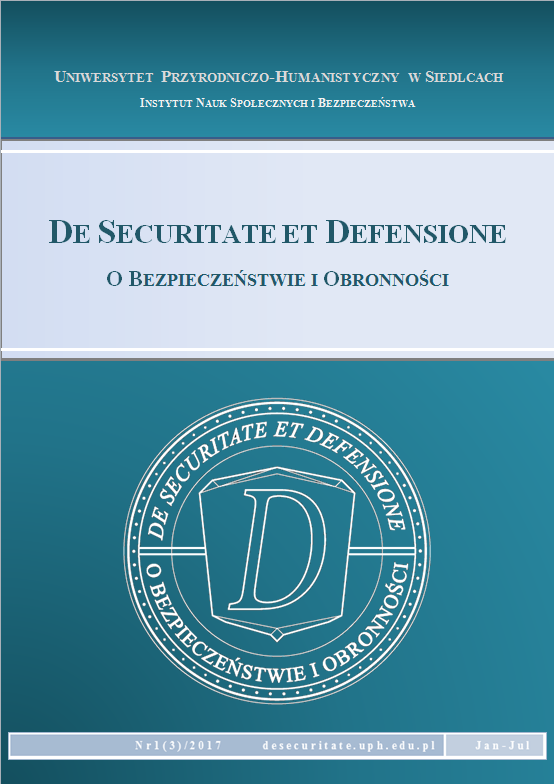
Due to the nature of contemporary armed conflicts and the resulting operations, the “problem”of the new social group, which has traditionally been called “veterans”, was born. It was a reasonable duty of the states to provide assistance to injured and wounded (damage to physical and mental health) soldiers returning from military operations abroad and their families. The introduction of the Act of 19 August 2011 on Foreign Mission Veterans has initiated the possibility of building a system of care for veterans in Poland. As it is strived to create the right care system, it is important to analyze, how other countries have solved this problem. Therefore, the cognitive goal of this publication is the identification and explanation of the assumptions of the functioning of the veteran care system in the Republic of Estonia.In addition, in view of the utilitarian objective – the use of the Estonian system of care to determine the base of the quality changes of the veteran care system in Poland – it is carried out a SWOT analysis of the discussed system.
More...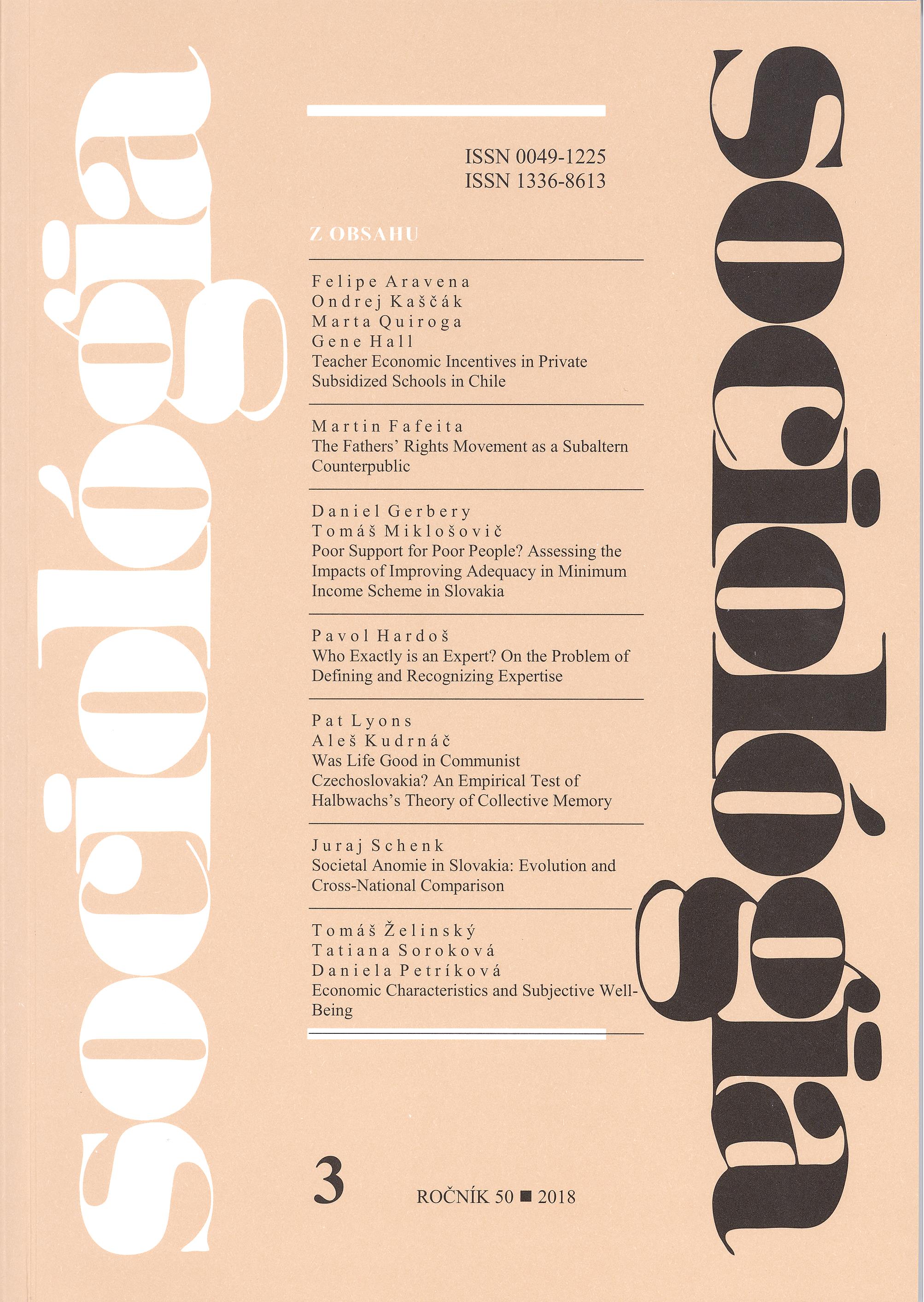
The paper conceptualizes and quantifies effects of improving adequacy in the minimum income scheme in Slovakia. It builds on previous findings on its significant shortcomings and discusses them in relation to the ideas of activation, active inclusion and social investments. The core of the paper is based on microsimulation of effects of proposed reform scenarios. Three major changes of minimum income scheme’s parameters are explored: setting new amounts of minimum income benefit, introducing guaranteed amounts in the minimum income scheme, and change of equivalence scale. The effects are identified in terms of poverty rate, poverty gap, size of target population and budget requirements. Results serve as a basis for discussion on future reforms of the minimum income scheme in Slovakia.
More...
The primary objective of this study is to examine the relationship between economic characteristics and well-being as one of the components of quality of life. The study is based on microdata obtained from a representative EU-SILC 2013 survey covering the Slovak population age 16 and older. Subjective well-being is proxied by a score reflecting the general mood or affect, including depression, anxiety, and psychologic well-being. The estimated mean value of the total subjective well-being score is 70 (median: 73). The results presented in this study suggest that economic factors are strongly correlated with the level of subjective well-being. The findings propose positive and diminishing returns to income; unemployed people score on average approximately 9 points lower than those who are employed; people living in indebted households have a lower level of subjective well-being than those living in households without debts; and the ability to face unexpected financial expenses increases the level of well-being.
More...
The study is concerned with the changes in social and health care in the Kingdom of Hungary in the first half of the 19th century. In this period social care became more systematic and was gradually separated from health care. Apart from town administrations and religious institutions, charitable societies began to significantly contribute to charitable activities. Under the influence of the central government, local authorities began to devote increased attention to such categories of dependent people as the mentally ill, single mothers and illegitimate children, who had previously been scorned or punished by society. Educational institutions for deaf-mute and blind children were a new element on the regional level.
More...
The study describes the main principles and stages of modernization in the long 19th century in the Kingdom of Hungary on both the state and local levels using the example of Pressburg / Bratislava. Since the reforms of Joseph II directed towards centralization of care for the poor in the Kingdom of Hungary were not implemented, care for poor and socially dependent people in the towns of Hungary was mainly the responsibility of municipal, church and charitable institutions. Until the fall of the Habsburg Monarchy, the Kingdom of Hungary devoted little attention to care for the poor, and state social policy had only weak effects. In comparison with other towns in Hungary, Pressburg / Bratislava had a mature network of communal and church institutions for social care, which were incorporated into an emerging system of communal social policy around 1900.
More...
There has not been enough attention given to the topic of social security in Slovak psychological research; although the state of social protection, legal aspects of social security or themes of social services, social policy and social care are well described by economists, sociologists, lawyers or social workers. The article provides an overview of the current knowledge of social security attitudes as attitudes have been a research topic of social psychology for a long time. Social security benefits and services provided by welfare states are linked to many predictable or unpredictable events; such as unemployment, illness, birth of a child or retirement. The questions that could arise are: who has a positive or negative attitude towards providing social security benefits and services?; who deserves the help?; why and to what extent?; and if there are any causal differences between European countries. This review is divided into four main parts. Firstly, a brief description of the social security system in the Slovak Republic is provided. The social security system consists of social insurance, state social support, and social assistance. They are based upon dissimilar principles, i.e. the principle of merit, equality and need, respectively. Within the European Union, the coordination of the social security system is applied. However, due to the specific conditions in every country, it is not possible to establish a unified social security system yet. Secondly, the paper describes and summarizes different types of welfare states in the context of chosen typologies. It begins with the typology of Esping-Andersen (1990), Leibfried, (1992), Ferrera (1996), and Bonoli (1997) and continues with recent research that lead to the question about numbers and different types of welfare states e.g. Arts and Gellisen (2001) or Gryaznova (2013). Thirdly, the definition of social security attitudes in relation to Fishbein´s and Ajzen´s theory is presented. The possibility of categorizing welfare attitudes into three levels, according to the degree of generality, is outlined. The most general category is welfare state attitudes, more specific one are attitudes towards different types of welfare state. These are: Social democratic, Conservative, Liberal, and Radical. It is possible to divide people into attitudinal types and analyse their attitudes or specific traits. At the most specific level, there are attitudes towards providing benefits and services to different groups of beneficiaries, such as pensioners, the unemployed or single parents. Finally, the results of research on determinants of social security attitudes carried out are described. The large amount of research is built on survey databases such as the European Social Survey or International Social Survey Program.
More...
This paper discusses a selected product of the payout phase of the old-age pension saving scheme in Slovakia which is stated by Act 43/2004 Coll. on the Old-Age Pension Saving Scheme, in Article 46. It models and analyses the amount of pension annuities in the designed product according to mortality rates, euro area yield curves, specific composition of the insurance strain, expenses and other requirements of the authorities of the European Union and Act 39/2015 Coll. Additionally, the paper provides answers to current questions about the payout phase of pension savings. It points to all aspects relating to the determination of the amount of future pensions.
More...
Comparing Citizen Attitudes towards Security and Liberty in the Czech Republic and Slovakia. One of the key problems of our time is how much security we want, what price we are willing to pay to feel safe and whether safety leads to satisfaction. Security has a financial and political cost. The article focuses on the relationship between security and privacy from the point of view of a citizen. It examines Czech and Slovak citizen attitudes toward the use of strong prevention security measures in a situation where the government suspects a terrorist attack or security threats in general. We focus on the Czech Republic and Slovakia, two countries that do not have much experience with a severe threat to security, so security is more about pre-emptive measures and general consideration. Data from the two latest ISSP Role of Government modules (IV. and V.) are employed to analyse the degree to which citizens in both countries accept security measures and what are the determinants of their acceptance. We find that a mixture of the low level of trust and a high level of perceived corruption foster sceptical attitudes towards the use of strong security measures. Citizens are less willing to have their personal freedom limited if they do not trust their government. Populists and radical right harness mistrust and fear of immigration to strengthen their issue-ownership on law and order, promising more security but often seeking to limit the freedoms and individual liberties. In this context, the search for the balance between security and liberty has a new urgency and should receive more comparative attention in the future. Sociológia 2019, Vol. 51 (No. 6: 603-622)
More...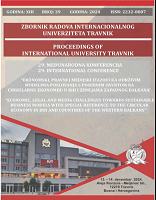
Children without appropriate parental care represent one of the most vulnerable categories of society, this area has long been regulated normatively for the safety and protection of every child in every civilized society. Forms of social services for children without appropriate care in the Federation of Bosnia and Herzegovina are institutional and non-institutional, with it being important to emphasize that the form of institutional care has been the most dominant for a long time. The aim of this paper is to present and analyze the manner and conditions of exercising the right to social welfare services for children and youth without adequate parental care at the level of ten counties-cantons in the Federation of Bosnia and Herzegovina. Using a comparative method, we will compare the conditions and manner of exercising the right to social services for children and youth without adequate parental care in ten counties-cantons in the Federation of Bosnia and Herzegovina. A special focus in this paper is on the reasons for the separation of children from biological families, as well as the structure of children by gender, age and educational level, and the number of children who leave the social welfare system. Based on the results obtained, recommendations will be offered that will serve policymakers for better planning of social services for children without adequate parental care, as well as amending existing legal regulations with the aim of ensuring a family environment for the growth of children without adequate parental care. In the Federation of Bosnia and Herzegovina, the most common form of social service in practice is the placement of a child in a social welfare institution. However, recently, more and more children are being placed in foster families through social work centers as a new form of care for children without adequate parental care.
More...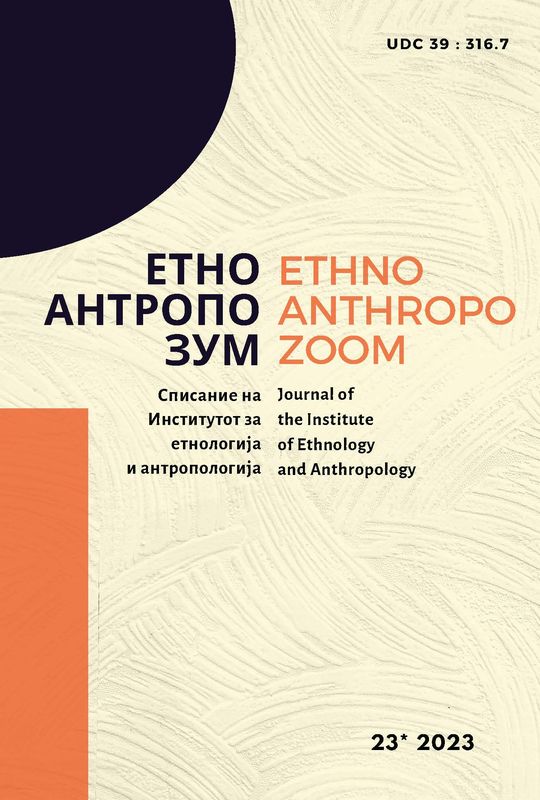
The text of Eda Starova Tahir looks at the present invocations of the Yugoslav socialist healthcare in North Macedonia as means of coping with the contemporary healthcare, in turn; which eventually set the policy expectations of the citizens in the post-socialist period.
More...
Leaders are aware that employees' work-related well-being has a direct impact on their productivity, job satisfaction, sickness absence and turnover rates. It is in an organisation's interest to invest in employee well-being as it also determines the intellectual capital of the organisation. Naturally, there is increasing demand for research on the factors that promote employee well-being in organisations. Understanding these factors allows leaders to develop solutions that enhance organisational competitiveness and contribute to the development of healthy organisational strategies. Empirically based welfare recommendations for social workers would contribute to the retention of social workers in the labour market. Many risk factors can be reduced or buffered, but this requires a renewed managerial knowledge and effective tools. The aim of this paper is to shed light on the occupational well-being of social workers and the measures to ensure it from a managerial perspective.
More...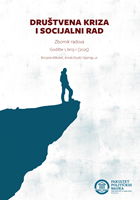
The integral approach to the science of social work, its theory and methodology, higher education of social workers and activities in social work practise is based on the axiomatic postulates of connections and relations, interpenetration and interdependence and the indissoluble dialectical unity of their factors, properties, roles and functions in the process of acquiring and exercising knowledge in the relations science-profession, methodology-methodology, scientific research-professional research as a basis for the improvement of social practise, i.e. the results of research in practical application.
More...
High-conflict divorces are an encreasing social issue in Bosnia and Herzegovina, characterized by complex dynamics and serious consequences for children and families. This paper provides a theoretical understanding of divorce, particularly in situations where no consensus is reached regarding child custody. It analyzes the legal framework governing high-conflict divorces, including international standards and domestic legislation, as well as institutional challenges in protecting children’s rights. By reviewing literature from social work, law, social psychology, pedagogy, and related fields, and analyzing reports from relevant institutions addressing high-conflict marriages, key issues such as child manipulation, child support claims, maintaining parent-child contact, and international child abductions are identified. Findings indicate that, despite the existence of a legal framework, the implementation of laws often encounters obstacles, further complicating support for children in high-conflict divorces.
More...
Bosnia and Herzegovina has faced a significant influx of migrants, refugees, and asylum seekers in last few years. Addressing these movements poses a challenge given the complex dynamics of social, cultural, and political issues in the country. In this context, the paper examines two key aspects of support for migrants, refugees, and asylum seekers in Bosnia and Herzegovina: (1) it explores the importance of psychosocial support necessary for their integration into the local community. By focusing on counseling and psychotherapy, the research addresses the accessibility of these services for migrants, refugees, and asylum seekers in Bosnia and Herzegovina. The paper also focuses on (2) media reporting on migrants, asylum seekers, and refugees in Bosnia and Herzegovina, considering the impact of media on public opinion. Although journalism should be objective and truthful, respecting fundamental human rights, sensationalism, incitement, or xenophobia are observed in media portrayals of migrants, refugees, and asylum seekers. In this regard, the paper analyzes the impact of such reporting on societal perceptions of migrants, refugees, and asylum seekers and explores how media narratives may contribute to the spread of prejudice and discrimination in society. By providing a deeper understanding of these dynamics, the paper offers a foundation for building a more inclusive and humane approach to managing the migration crisis in Bosnia and Herzegovina.
More...
The relationship between quality of life and disability reveals a cause-and-effect connection, wherein the disability affecting an individual significantly determines their quality of life. In this context, quality of life is influenced by both subjective and objective indicators, with its complexity further shaped by historical developments. Notably, persons with disabilities have historically been subjected to various forms of societal behavior and rejection, ranging from abuse, stigmatization, and discrimination to more progressive approaches. Contemporary perspectives are marked by the social model, transitioning towards a human rights model since the adoption of the Convention on the Rights of Persons with Disabilities. This paper presents various theoretical concepts of quality of life and measurement instruments derived from these concepts. Additionally, through different theoretical approaches, the paper examines societal attitudes towards persons with disabilities, emphasizing the need for change and underscoring the importance of providing social support as a crucial factor for improving their quality of life.
More...
The natural environment is the basis for the sustainability of the society and the future of the planet. From nature we get air, water, food and the health and life of people are inextricably linked to its condition. Climate change, degradation and pollution of nature directly threaten people's lives. This paper starts from the task of social work as an activity to ensure the satisfaction of people's life needs, especially through access to basic natural resources (food, water) as basic human rights. The paper updates the role of social work in the protection of human rights in the context of environmental protection.The paper shows the connection and importance of these topics and points to concrete mechanisms and procedures by which social workers can contribute to the respect of human rights, an integral aspect of which is a healthy and sustainable living environment. Social workers trained in assessment and intervention are the bearers of activities aimed at respecting human rights and creating an eco-social world. Advocating for the respect of the rights and equality of all people, as well as the preservation of natural resources, represent the foundations of social activism. Such social work is carried out at all levels, including education of individuals, raising community awareness and cooperation with government organizations.
More...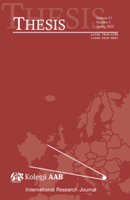
The Covid'19 Pandemic created a global public health crisis. State measures and protocols created difficulties in effective doctor-patient communication, therefore the psychological assessment of this communication during the Pandemic becomes the object of research on this topic. The purpose of the study is to describe the impact of the Pandemic on the functioning of the doctor-patient relationship in the primary health service. The study was carried out in the District of Lezha, in the cities of Rrëshen, Laç and Lezha. The sample of the study are 6 family doctors and 24 patients, who communicated with the family doctor during the rehabilitation period in home conditions. This study is built on the qualitative approach of scientific research, using as an instrument the in-depth interview focusing on the impact of the Pandemic on doctor-patient communication. The results of the study showed that doctor-patient communication during the Pandemic had barriers and a negative impact on this relationship.
More...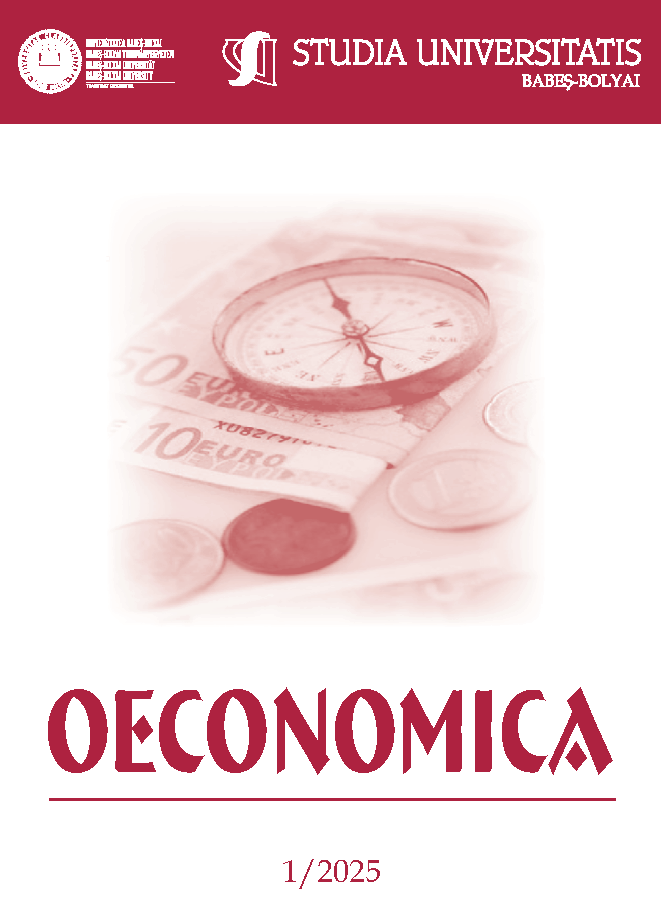
Using the data of a sample consisting of 99 cities from 37 European countries (2024) this paper discusses the determinants of rent prices. The results indicate that rents are lower in areas with longer commute times and higher cost of living index, while high wages and high house price to income ratio (HPIR) lead to increase rent prices. In this paper, we constructed the Rent Index as average of four variables relating to the rents of one-room and three-room apartments in the city centre and in the suburbs. We identify the factors that explain the variation of the Rent Index using multiple linear regression. The overall conclusions of analysed models are mixed: salary is the strongest predictor in all models, if the city is a university one, we expect an average rent increase between 105.9 and 115.81 euro compared to non-university cities. If the city has a tourist attraction, the rent price will increase on average with a sum between 114.59 and 158.61 euro; the safety index and pollution index have significant effects on Rent Index; an increase of HPIR by one unit will lead to an increase in the Rent Index with 13.6 euros per month.
More...